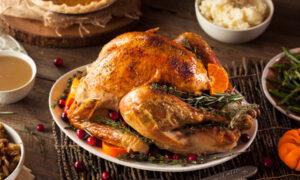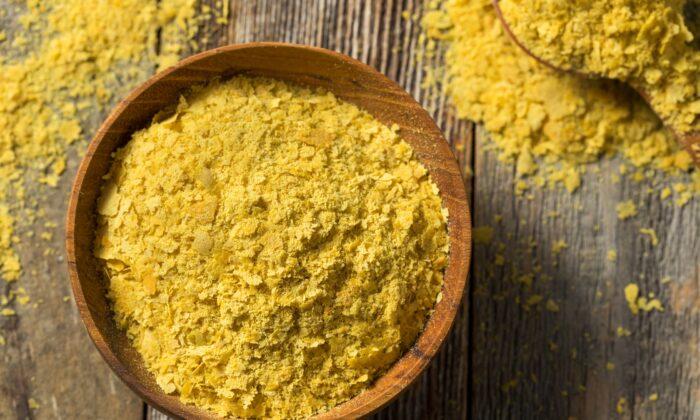Thanksgiving is here, and maybe your turkey is already thawing in the refrigerator. Please note—if you’re thawing it out on the kitchen counter, putting it in the fridge or a bucket of cold water is safer—you can take a quick look at the USDA’s guidelines for safe thawing.
However, if your style is more “last-minute,” and the bird has yet to be bought, or maybe you’re having a late celebration, consider splurging on an organic turkey. What it offers in both flavor and nutrition just may be worth the extra cost.
Comparing turkey prices in stores this week will probably not raise stress levels as much as it has in recent years. The American Farm Bureau Federation reports that the average cost of a Thanksgiving dinner is down about 6 percent from last year (but still about 25 percent higher than it was in 2019). The average price of a frozen turkey in August was $1.27/lb, and prices at major retailers currently range from $0.98/lb to $2.69/lb.
With reasonably-priced birds readily available, why spend more—often much more—for an organic turkey? A quick search around the Midwest, where I live, found the cheapest organic turkeys at Costco, for $3.49/lb. Whole Foods (via Amazon) is selling 10–12 pound organic birds for $3.99/lb—and the prices go up from there. Organically-raised turkeys shipped from small farms can easily run $125 or more. Which begs the question: “Why pay more?”
Weighing the Costs–Organic Versus Commercial Turkey
One reason is to avoid or at least minimize antibiotic residue resulting from the historically massive use of antibiotics in the commercial meat supply. Public health authorities have sounded the alarm connecting antibiotic residue and antibiotic-resistant bacteria found in meat and other animal products (like milk and eggs), to health problems in humans, including antibiotic resistance. This occurs when certain bacteria no longer respond to the antibiotics which are supposed to kill them.An April 2018 review published in the journal Molecules discussing antibiotic use in agriculture and its potential effect on human populations noted that “Resistance to antibiotics is an inherent side effect associated with the overuse, abuse, or substantial use of antibiotics.”
The U.S. Food and Drug Administration has made efforts in recent years to curb the overuse of antibiotics in agriculture and reduce the overall quantity of antibiotics administered, and many farms have taken steps in that direction. However, in buying an organic turkey (which carries the USDA-Organic seal), you can rest assured that your Thanksgiving dinner does not come with a side of antibiotic residue.

ZikG/Shutterstock
You’re likely getting a more nutritious bird, too. When we eat any poultry, we are also consuming what that bird ate, and a higher quality diet will naturally result in more nutritious meat. Organically-raised turkeys are fed a diet of organic, non-GMO feed, no animal by-products, and are allowed access to the outdoors—to spend time doing what turkeys naturally do— roam and forage for insects, clover, and other nutritious tidbits. This improved diet and lifestyle results in meat that is higher in Omega-3 fatty acids and vitamin E than conventionally raised birds.
The flavor just might be better, too. Granted, flavor is subjective and can depend on a host of factors including seasonings and cooking methods. But organic turkeys are often thought to have a richer flavor that’s a result not only of the feed they are raised on but also because the birds have more opportunity to move freely and use their muscles the way nature intended.
And a final note—organically-raised turkeys live a life that would make their conventionally-raised cousins cluck with envy. According to the USDA’s Organic Livestock Requirements, organically raised animals must have access to the outdoors, space for exercise, shade, fresh air, clean drinking water, and direct sunlight. It’s an approach that respects the animals’ basic needs and natural behaviors.
Maybe this is the year to get the sweet potatoes, green beans, and pie on sale—and spend a little more on an organic bird.







